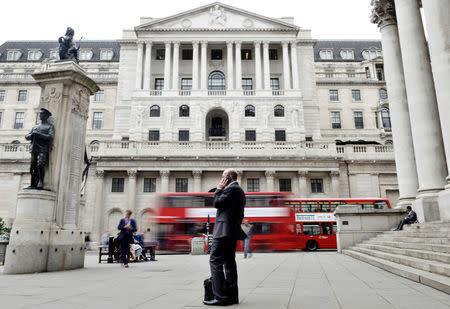Bank of England's McCafferty backs market bet on 'late 2017' rate rise

By David Milliken LONDON (Reuters) - Financial markets are less at risk of "an unpleasant surprise" from the Bank of England, now that they expect an interest rate rise later this year, rather than in mid-2019, BoE policymaker Ian McCafferty said on Thursday. McCafferty, who has voted for a rate rise since June, said financial markets had wrongly regarded the BoE's hands as being tied by Brexit uncertainty, until the BoE said in September that most policymakers expected rates to rise in the coming months. "This has had the effect of bringing forward expectations of the first rise in Bank Rate from mid-2019 to late 2017, reducing the risks of an unwelcome surprise," he said in a speech to a business audience in London. The BoE last raised interest rates in 2007, and cut them to a record-low 0.25 percent in August 2016 after the economy appeared to be slowing sharply following June 2016's vote to leave the European Union. Most economists now expect the BoE to reverse this move in November, and raise rates again in 2018. Brexit is likely to slow growth in Britons' incomes and weaken the rate at which the economy can sustainably expand, problems the BoE can do little about, McCafferty said. But policymakers would keep a close watch on shorter-term signs of Brexit uncertainty hurting businesses and households. McCafferty said interest rates would need to rise "several times" before the BoE considered starting to sell its 435 billion pounds of quantitative easing gilt purchases, and that the effect of such sales might be limited. McCafferty's term on the BoE's Monetary Policy Committee expires at the end of August 2018, and he said he did not expect reversing QE to be much of an issue during this time. The BoE has previously said it would not consider selling QE assets until rates had risen some way. McCafferty said QE sales were not identical in their economic effect to rate rises, and instead affected the relative costs of different lengths of borrowing, rather than the outright cost itself. (Reporting by David Milliken; Editing by William Schomberg)

 Yahoo News
Yahoo News 